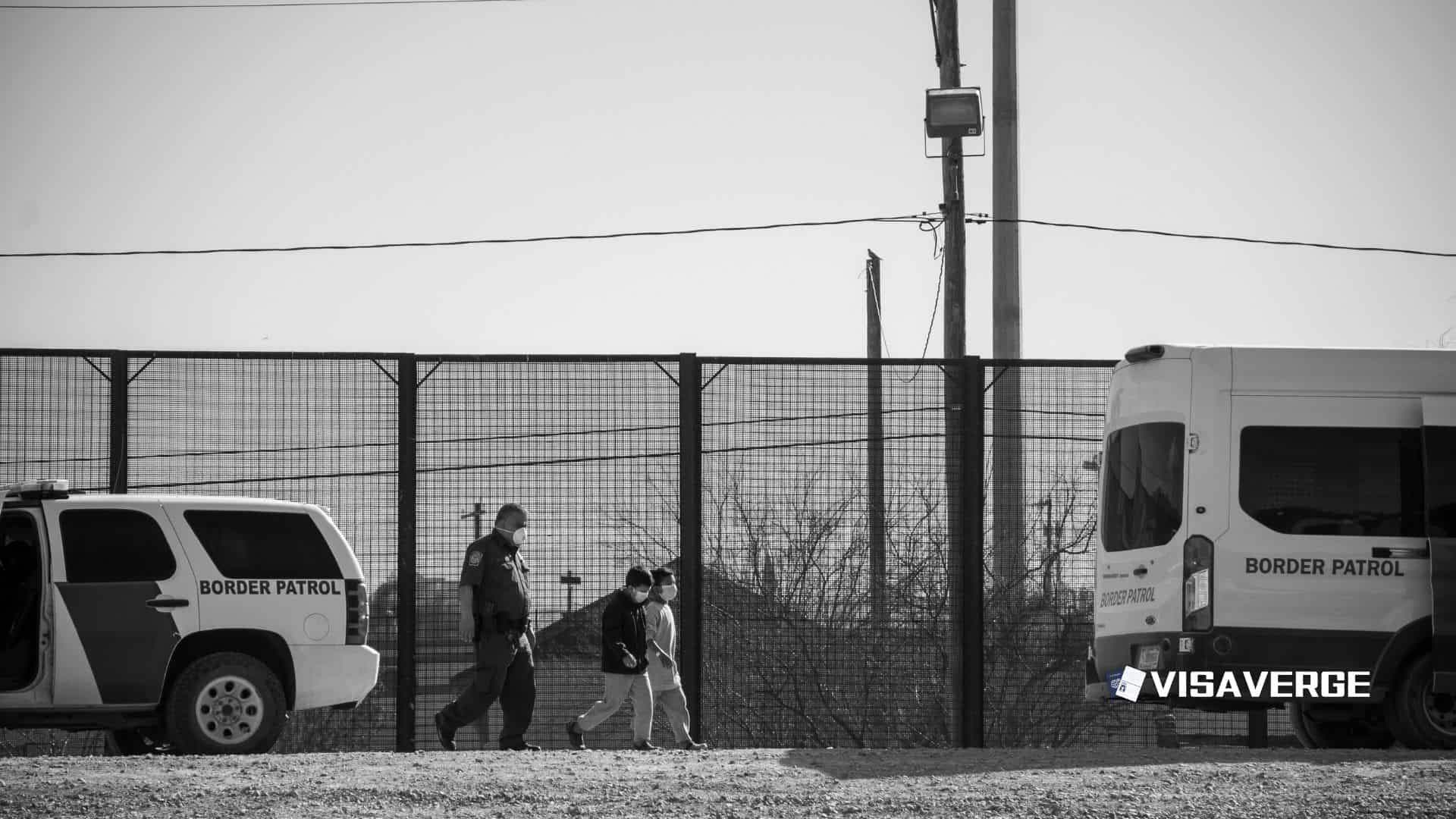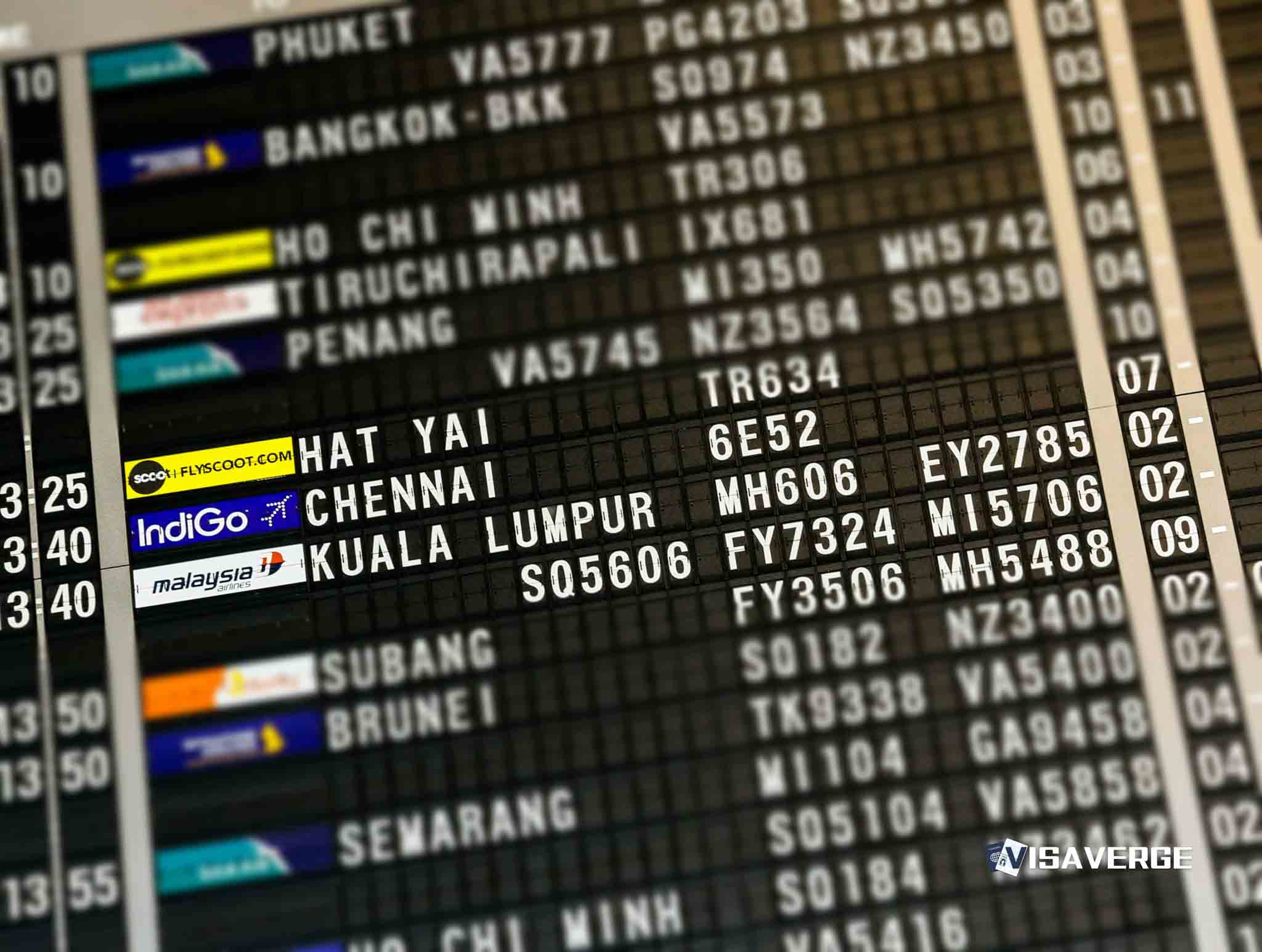Key Takeaways
• On February 20, 2025, officials confirmed 180 Venezuelan immigrants with final deportation orders are detained at Guantanamo Bay, Cuba.
• The facility aims to expand capacity to hold 30,000 detainees; currently, its low-security center accommodates about 2,500.
• TPS termination affects over 600,000 Venezuelans; 350,000 could lose U.S. legal status by spring 2025, amid mounting legal challenges.
On February 20, 2025, U.S. officials confirmed the transfer of Venezuelan immigrants with final deportation orders to the naval station at Guantanamo Bay, Cuba 🇨🇺. This change marks a major shift in how Venezuelan migrants are being managed under President Trump’s immigration policies. Nearly 180 Venezuelans are now detained at the facility, housed across both low-security tents and high-security accommodations. Of these, 51 individuals are in tents, while 127 are in high-security areas.
The detainees began arriving on February 4, 2025, via nearly daily flights from a U.S. Army base in West Texas. This is part of President Trump’s expanded immigrant detention initiative, which aims to increase the capacity of Guantanamo Bay to hold up to 30,000 people. Currently, the site’s low-security migrant operations center can hold about 2,500.

The Legal and Human Rights Debate
This development has sparked legal controversies and raised important questions about detainees’ rights. U.S. authorities argue that these immigrants, who already have final deportation orders to Venezuela 🇻🇪, do not have the right to legal counsel. However, a lawsuit has challenged this claim. Filed on behalf of three detainees, it requests unrestricted phone and in-person access to their lawyers, as well as advance notice before any potential removals from the facility.
In response to the lawsuit, a U.S. District Court in Washington, D.C., ordered authorities to provide phone access to legal counsel. However, the government opposes in-person legal access or communication with relatives, citing logistical issues and the likelihood that stays at Guantanamo will be “brief.”
The Center for Constitutional Rights, along with other advocacy groups such as the American Civil Liberties Union of New Mexico, argues that the treatment of these detainees highlights broader issues in current U.S. immigration policy. These groups emphasize the importance of legal representation and transparency as essential safeguards against potential abuses in complex immigration cases.
A Historical and Policy Context
Using Guantanamo Bay for immigration detention is not a new idea. In past years, the facility was used to house those caught attempting to reach the U.S. by boat and for processing large numbers of migrants. However, the current use of Guantanamo represents a more aggressive stance, mirroring other policies under the Trump administration aimed at stricter immigration control. Officials assert that the expanded use of Guantanamo is necessary due to the sharp increase in arrivals of Venezuelan immigrants at the U.S. border.
This growing wave of migration comes as the Trump administration reverses the Temporary Protected Status (TPS) program for Venezuelans. The termination of TPS, announced in January 2025, is currently being phased out and affects more than 600,000 Venezuelans who were previously protected. An estimated 350,000 of these individuals may lose their legal status within the United States as early as this spring.
The TPS program, introduced under President Biden in 2021, was established in response to Venezuela’s worsening economic and political crisis under President Nicolás Maduro. The move provided temporary relief from deportation for Venezuelans already in the U.S. However, Secretary of Homeland Security Kristi Noem justified ending the program by claiming that continued TPS was “contrary to the national interest.” She also pointed to difficulties U.S. communities face in integrating large migrant populations and alleged security concerns, notably linked to Venezuelan criminal gang activity like the Tren de Aragua network.
Challenges at the Border
The mass migration of Venezuelans is not a new phenomenon but has developed into a significant humanitarian crisis. According to the United Nations, over 7.7 million Venezuelans have fled the country since Nicolás Maduro came to power, representing over 20% of Venezuela’s total population. Many have fled economic collapse, lack of basic services, political repression, and social instability.
As a result, countries across the Americas are grappling with this migration crisis, including the United States. Reports show Venezuelan migrants making up a growing share of those arriving at the U.S.-Mexico border. In August 2023 alone, U.S. officials recorded more than 25,000 Venezuelan apprehensions at the border, a massive increase compared to previous years. By September, this number climbed to 33,000.
Under the Biden administration, Title 42—a policy originally introduced under President Trump during the COVID-19 pandemic—had been the primary tool used to manage border crossings. Title 42 allowed for immediate deportation of migrants without processing asylum claims. However, the policy faced limitations, particularly in cases where countries like Venezuela refused to accept deportees.
The current measures to detain Venezuelan immigrants at Guantanamo Bay spotlight continuing challenges in addressing migration flows. Immigration and Customs Enforcement (ICE) is now sharing public data on arrests, removals, and options other than detention, showing a clearer picture of enforcement trends.
Legal and Political Backlash
The policy shifts under the current administration have triggered multiple lawsuits challenging the government’s treatment of Venezuelan immigrants. On February 11, 2025, for instance, a federal court temporarily blocked the deportation of three Venezuelan immigrants held in New Mexico who were scheduled to be transferred to Guantanamo Bay.
The litigation was spearheaded by human rights organizations, which argue these individuals are emblematic of a larger group facing harsh policies. This case and others are testing the legal framework applied to immigrant detention, which continues to raise concerns about transparency, due process, and ethical treatment. Advocacy groups have framed the use of Guantanamo Bay as setting a worrying precedent, not just for Venezuelans but for broader U.S. immigration policy.
Migration Trends and Possible Impacts
The fate of Venezuelan immigrants at Guantanamo Bay, alongside broader immigration policy shifts, comes as Venezuela itself remains politically fragile. The country is preparing for its next presidential election in 2025, which many fear could be marred by manipulation and fraud under the Maduro government. Should such concerns materialize, further waves of migration are expected, adding strain to already stretched immigration systems in receiving countries.
The case of Venezuelan immigrants at Guantanamo Bay brings a mix of national security, legal, and humanitarian issues into focus. Analysts from VisaVerge.com suggest that such developments could not only alter U.S. immigration policy but also shape its humanitarian obligations on the international stage.
Conclusion
The transfer of Venezuelan immigrants with final deportation orders to Guantanamo Bay marks a turning point in U.S. immigration enforcement. From ending Temporary Protected Status to initiating new mass detention plans, these initiatives represent a firm stance by the Trump administration. However, a confluence of legal challenges, mounting public scrutiny, and ongoing concerns about Venezuela’s internal crisis suggest this story is far from over.
For more details about U.S. immigration processes and legal resources, visit the U.S. Citizenship and Immigration Services (USCIS) website here. This source offers vital information for immigrants and their advocates navigating current policies.
Ultimately, the treatment of Venezuelan immigrants—including their detention at Guantanamo Bay—is an unfolding narrative with significant implications for both individuals seeking safety and the broader policy landscape. The coming months will likely be critical in shaping the next chapter in this complex story.
Learn Today
Guantanamo Bay → U.S. naval station in Cuba, often used for detention, including, recently, housing immigrants awaiting deportation.
Temporary Protected Status (TPS) → A temporary immigration status for individuals unable to return safely to their home country due to crises.
Title 42 → U.S. health policy allowing immediate deportation of migrants during public health emergencies, bypassing usual asylum processes.
Tren de Aragua → Criminal gang from Venezuela involved in illicit activities, cited in security concerns linked to migration.
Due Process → Legal principle ensuring fair treatment and rights, such as legal counsel, during judicial or administrative proceedings.
This Article in a Nutshell
The detention of Venezuelan immigrants at Guantanamo Bay highlights a stark shift in U.S. immigration policy under Trump. With legal battles brewing over detainees’ rights, this controversial move underscores the tension between border enforcement and humanitarian obligations. As Venezuela’s crisis deepens, these unfolding policies may shape migration debates for years to come.
— By VisaVerge.com
Read more:
• Court Blocks Trump’s Plan to Send Migrants to Guantánamo Bay
• Trump’s Plan May Send Non-Violent Migrants to Guantanamo for Detention
• Trump Administration Sends Undocumented Immigrants to Guantanamo Bay
• Cuban Ministry of Foreign Affairs Condemns U.S. Migrant Policy at Guantanamo
• Trump Plans to Use Guantanamo Bay for Detaining 30,000 Migrants







